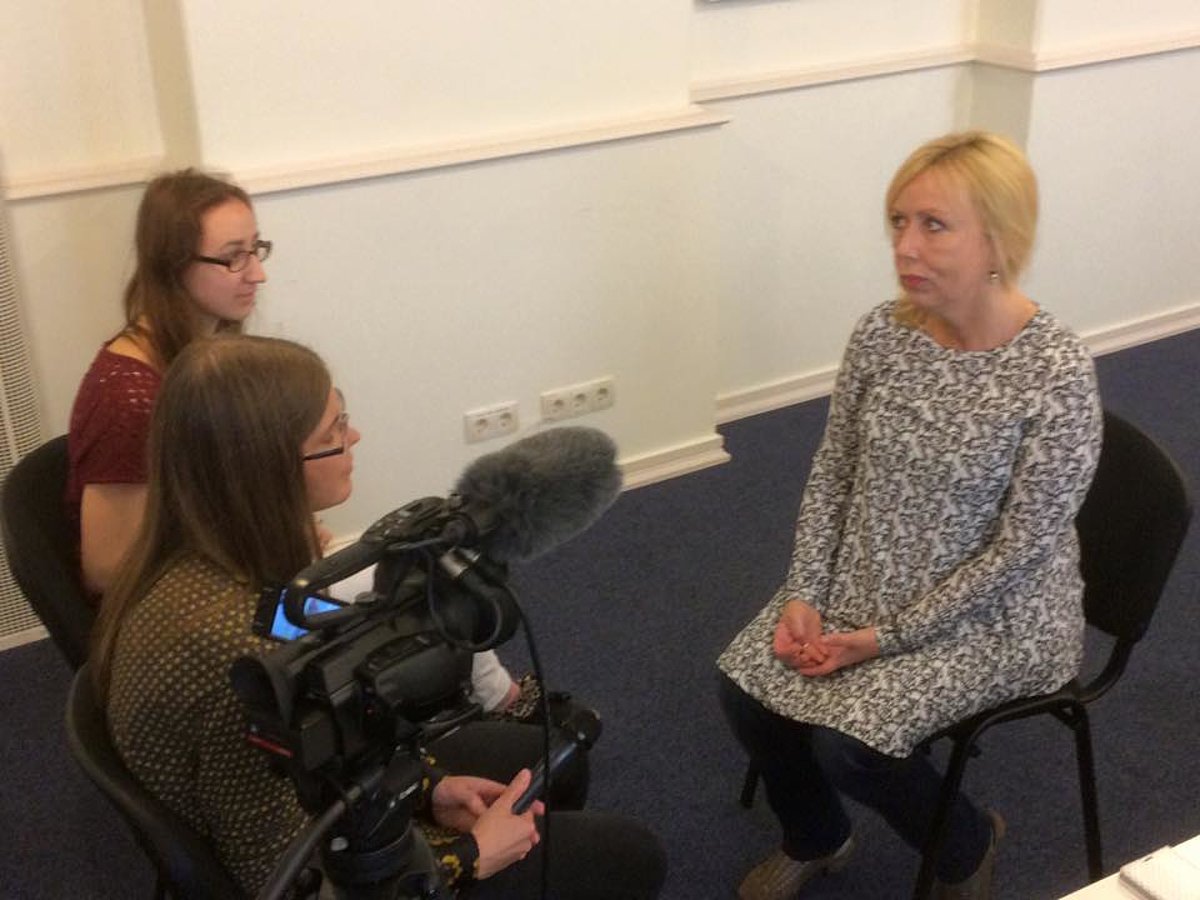
During the summer school students will have to leave a lasting imprint in the field of documentary films. This year their objective is to create four documentaries on four important issues considering Latvia’s social memory and identity: (1) the Holocaust and the Second World War; (2) Soviet deportations; (3) the Barricades of January 1991 and the events of the Awakening period; (4) the memorial sites and memories in Latvia. The premiere of short documentary films will be held on August 17, at 7 p.m. at the Goethe Institute in Riga (Tower St. 1). Entrance will be free. Everyone is invited.
Documentaries that will be presented on the Wednesday evening:
* “ABOUT THE FORGOTTEN” – this feature reflects the story of a young Jewish girl recalling in early childhood days, when her family was deported;
* “MEMORIES FROM STAGE” – a short film about one of Latvia's most important cultural landmarks: The Latvian National Theater;
* “VOICES OF REVOLUTION” – a short film about Singing Revolution focusing on the Barricades on Riga Dome square in January 1991;
* “SOMEBODY OUT THERE” − a short documentary about LGBTQ* in Riga. The film follows the development of the LGBTQ* Community from the Soviet Era throughout the Regime change until today.
In order to examine Latvia’s problematic social memory and identity issues students along with researchers of "LIVINGMEMORIES" project visited the Museum of the Occupation of Latvia, Latvian National Museum of Art, Museum of Barricades of 1991, as well as Latvian National Theatre, monument dedicated to victims of the Soviet deportations in Torņakalns and the historic Riga ghetto and travelled to Liepaja and Daugavpils.
Project’s "Living Together with Difficult Memories and Diverse Identities" or “LIVINGMEMORIES” research group from University of Latvia is led by Professor, Dr. hist. Vita Zelče. Researchers involved in the working group are Dr. sc. comm. Laura Ardava, Dr. sc. comm. Didzis Bērziņš, Dr. soc. sc. Jurijs Ņikišins and Dr. art. Zane Radzobe, Mg. soc. sc. Sanita Burķīte and Mg. soc. sc. Aija Rozenšteine. The task of the research group of University of Latvia is to analyze society’s life after violent conflicts, the occupation, the Holocaust and repressions that led to the traumatic experience and the formation of new ways of living and practices of maintaining and reproducing memory. At the University of Latvia the project is implemented by the Social Memory Research Centre – interdisciplinary research unit of the Advanced Social and Political Research Institute of the Faculty of Social Sciences.
Project “LIVINGMEMORIES” is an interdisciplinary social science and humanities project, which focuses on problematic social memory, as well as on the imprints of conflicts and protest movements on memory and identity. Within the project research groups from University of Helsinki, which is the leading partner, Perm National Polytechnic University, University of Tartu, Goethe University of Frankfurt am Main, Koç University in Istanbul and University of Latvia are working together. The co-ordinator of the project is Dr. phil. Kirsti Salmi-Niklander from University of Helsinki. This is the first social science and humanities project that is implemented in the program ERA.NET RUS PLUS (EU-FP7). This is the European Union’s 7th Framework Program, which focuses on the promotion of European Union member state scientific cooperation with Russian scientists.

 CONFERENCE
CONFERENCE